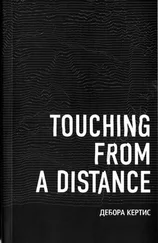Suddenly, he realized that he had left the burro behind. Going back was unthinkable. He waited, ready to give up the burro and its load rather than return to the edge of the village. Moments later, the burro came into sight, walking, resigned and dignified, toward his companions.
West again. The grass, the horizon. The tyranny of the elements. Undefined visions wafting through his brain, seldom amounting to thoughts. Relinquishing command to his horse. Barely eating. Clearing his throat to remind himself of himself. Sunburned. Smelling, occasionally, his own body. A vague and vacant interest in flowers and insects. Enough rain. No tracks, no threats. Sometimes, a fire leaping under his fingers. The burro and the horse in their perpetual present. His hands doing things. Riding on. Breathing, somehow. Benumbed, yet never finding rest from a thickening sense of desolation. Sponged up by the starry sky each night.
Summer came. Without a clear destination or purpose, there was no reason to keep trudging in the stupefying heat. When his horse led him to a pool, Håkan pitched camp—tarps, oilcloths, and hides stretched out over a cluster of low bushes, under which he would crawl and lie, unable to sit up, for most of the day. Now that Linus was beyond his reach, he saw no reason why he would not end his days there, languishing in the scrubs. The years would go by. His animals would die. Then, no creature (except, perhaps, a clubbed fowl or an ensnared rodent) would look into his eyes ever again. Old age would overtake him. Sickness would shrivel his innards. Once beasts and maggots were done with his flesh, some of his bones would remain scattered on the plains for longer than he had lived. Then, he would be erased.
He was sick of the sun and would often lie on his stomach, drowsy and almost feverish from the stale air under the low-hanging skins and canvases, to avoid its sight. Still, it would pierce through his refuge and bore into his skull, igniting all the past suns that had hunted down and degraded him and everyone else he had met throughout his journey—the sun, deceitful in Portsmouth, implacable over Brennan’s mine, cold-hearted against his Clangston window, shrieking across the salt lake, complicit through a wagon’s bonnet, excessive when unwanted, and far from its creatures when most needed. To distract himself, he looked into the crisscrossed disorder of the brambles. Many insects had dug their homes in the duskier recesses of those mazes. Barely realizing it at first, Håkan started to study the insects’ daily habits, distractedly mapping their itineraries. Slowly, as the days went by, his interest grew, and suddenly he found himself collecting beetles. He caught them under the dome of his hand, held them up for inspection. They remained uniformly frenzied, regardless of what was done to them, until he pierced them through with a suture needle. Håkan believed that the white paste that oozed out of the hole had to be some sort of liquid organ. But this was a fleeting thought. It was not moved by the naturalist’s curiosity that he gathered all those inflexible bodies; he did it because he found them pleasing to the eye. Arranging the iridescent shields in different patterns, but always by color and size, Håkan experienced a sort of pleasure that was entirely new to him. He had never experienced delight in color. The way each shade vibrated with a resonance of its own; how certain sheens seemed to emit light and others to absorb it; what neighboring hues would bring out in one another—these were all novel wonders to him. And he was surprised by the joy he got from organizing the beetles. He was consumed by the work on his designs, an effort with no end other than to stimulate his sense of sight. Sometimes he woke up to discover that a gust of wind had scattered his collection or upset his arrangements, but he was almost grateful to have to start from the beginning. In time, he was walking around camp, looking for new specimens. Unaware of it, he often spent the entire day wandering about, going farther each time. He regained some of his former vitality. He resumed some of his trapping and ate better. New pelts were tanned, and once again he took up work on his coat.
Still, he had no desire to travel on. He had not decided to stay there, in the bushes. But he had not decided to move forward, either. The mere thought of other people made his heart pound in his throat. And he still had no idea where he was. Was the desert he had last seen going south the same he had walked through in the north? If so, it would be senseless to move through the plains in either direction—he would just go around the world, from grassland to wasteland and back (and meet the emigrant trail in the middle). Proceeding farther west, he would run into prospectors and homesteaders, and he might even stumble upon San Francisco.
During one of his beetle-hunting expeditions, Håkan was bitten by a snake. Although he was stung on his right heel, he first felt it in his upper left gum. The sting made him jump, and he was lucky enough to land on the snake with the other foot, which allowed him to pin it down and stab it. He had heard that one should cut an X over the bite and rinse the venom out of the wound, and so he did. Back at the camp, he skinned the snake, thinking it would greatly embellish his coat. He made a stew with the flesh. After dinner, when he tried to get up, he noticed that his foot had purpled and swollen. He got colder. Dragging his numbed foot, he replenished the fire and lay down next to it. The snake meat did not seem to agree with him. His stomach felt like the center of a spiral, and his whole body was starting to spin around it. He made himself vomit and after a few attempts got it all out. It did not help, and now, while being colder than ever, he was soaked in sweat from the effort. His mind was shaking, but in the brief segment of quiet in between shivers, he could see that his condition had nothing to do with the food. It was too late for a tourniquet. All he could do was wait and hope that the poison would not be lethal. Keep his eyes on the fire. Try to find friendly faces in the flames. With a jolt, he realized that he had forgotten to breathe. He gasped for air, curled up, and tried to concentrate on the fire. But his body would not breathe. It was only through a colossal exercise of will that he could inhale. His lungs were inert, alien things—completely external devices, bellows he had to pump by hand. He feared he would die if he failed to actively produce the next inhalation. The fire became two fires, beyond which two burros and two horses grazed with indifference. His tongue, putrid and desiccated, tried in vain to push saliva down his crumbling throat. Shivering, he started crawling toward the pond. Although the edge was just a few paces away, the trip felt longer than his entire journey across America. He thought (although those dark ripples in his mind were barely thoughts) that the poison would soon bite into his heart and kill him or that he would die of cold or that wild animals would devour him or that he would faint and drown in the shallows of the pond. The blackness above would take him. Fear had always been loud for him—as soon as the feeling took over, he was deafened by the blood and air rushing through his body. But now, for the first time, terror was suspended in a silent void. Between each distant, laborious breath, Håkan barely felt his heart beat. Every now and then, he heard his animals cropping grass, their molars making the sound of pebbles in the water. There was something almost peaceful about this quiet horror. Then, a sudden gulp of air, and he would clutch a tuft of grass, crawl forward, and lie there, breathless. Whatever little remained of his consciousness was entirely devoted to taking in air and feeling panic; still, he managed to discover one thing—he feared death.
Читать дальше












